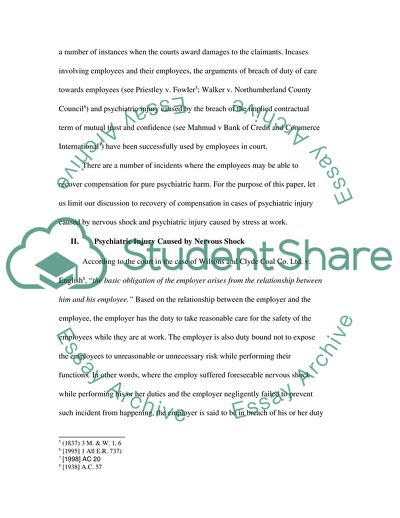Cite this document
(Recovery of Compensation for Pure Psychiatric Harm: When Employees May Coursework, n.d.)
Recovery of Compensation for Pure Psychiatric Harm: When Employees May Coursework. https://studentshare.org/law/1732464-tort-essay
Recovery of Compensation for Pure Psychiatric Harm: When Employees May Coursework. https://studentshare.org/law/1732464-tort-essay
(Recovery of Compensation for Pure Psychiatric Harm: When Employees May Coursework)
Recovery of Compensation for Pure Psychiatric Harm: When Employees May Coursework. https://studentshare.org/law/1732464-tort-essay.
Recovery of Compensation for Pure Psychiatric Harm: When Employees May Coursework. https://studentshare.org/law/1732464-tort-essay.
“Recovery of Compensation for Pure Psychiatric Harm: When Employees May Coursework”. https://studentshare.org/law/1732464-tort-essay.


